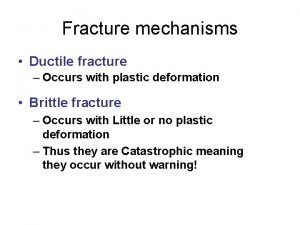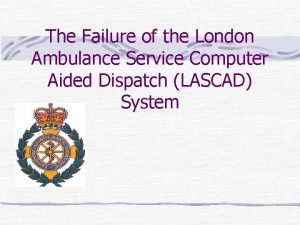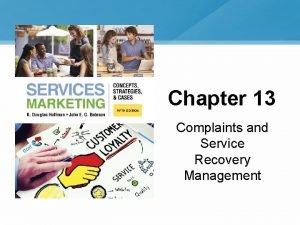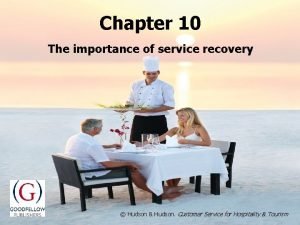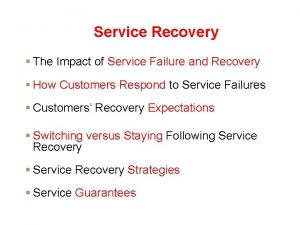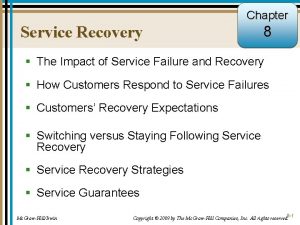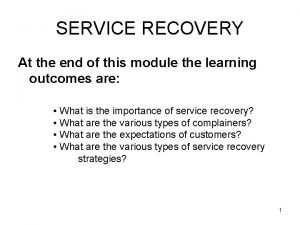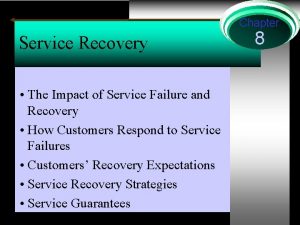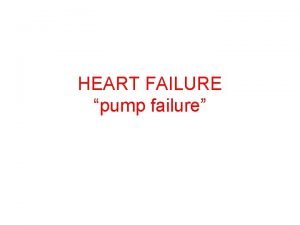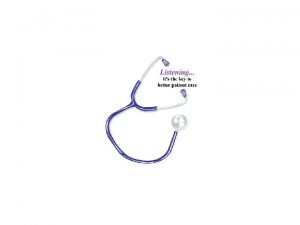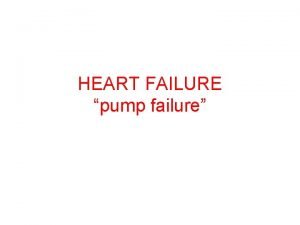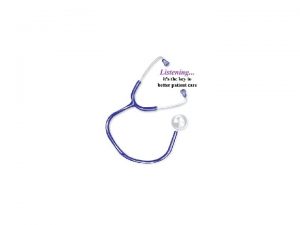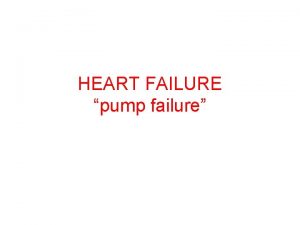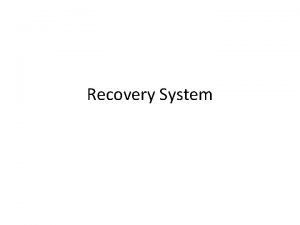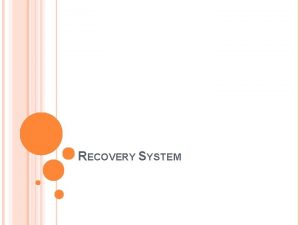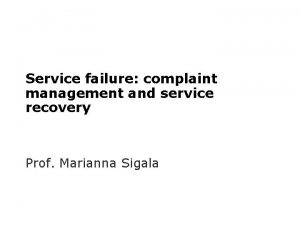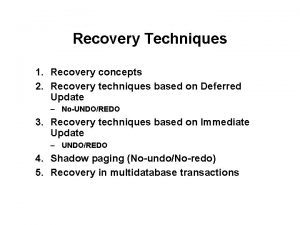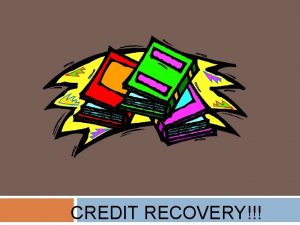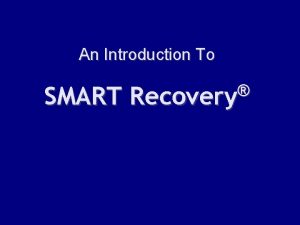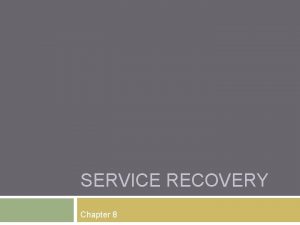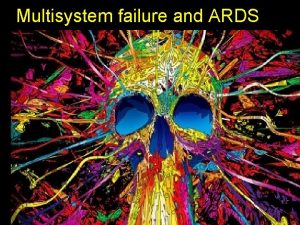Service Recovery The Impact of Service Failure and




























- Slides: 28

Service Recovery § The Impact of Service Failure and Recovery § How Customers Respond to Service Failures § Customers’ Recovery Expectations § Switching versus Staying Following Service Recovery § Service Recovery Strategies § Service Guarantees

Objectives Service Recovery § Illustrate the importance of recovery from service failures in keeping customers and building loyalty. § Discuss the nature of consumer complaints and why people do and do not complain. § Provide evidence of what customers expect and the kind of responses they want when they do complain. § Present strategies for effective service recovery, together with examples of what does and does not work. § Discuss service guarantees—what they are, the benefits of guarantees, and when to use them—as a particular type of service recovery strategy.

Reliability is Critical in Service but… § In all service contexts, service failure is inevitable/tdk dpt dielakkan § Service failure occurs when service performance that falls below a customer’s expectations in such a way that leads to customer dissatisfaction. § Service recovery refers to the actions taken by a firm in response to service failure.

Complaining Customers: The Tip of the Iceberg Figure 8. 1 Source: TARP Worldwide Inc. , 2007.

Unhappy Customers’ Repurchase Intentions Figure 8. 2

Dissatisfied Consumers’ Behavior § The Retail Customer Dissatisfaction Study 2006 by the Verde Group found: § 48% of respondents reported that they avoided a store because of someone else’s negative experience § for those who encountered problems, 33% said they would “definitely not” or “probably not” return § The exponential power of storytelling: § as people tell the story, the negativity is embellished/dibumbui and grows

Customer Rage/marah Study Conducted by In collaboration with

How Customers Expressed Their Displeasure ?

What Customers Wanted to Get ? Nonmonetary remedies

What Complainants Got ? § 56% of complainants felt they got NOTHING

Ping-Ponging (Number of Contacts Needed to Resolve Complaint) % complainants Mean number of contacts Complainants = 4. 3

% complainants Length of Time to Resolve Complaints

Fairness Themes in Service Recovery H e e r e ir s g a m I r e p C t r e s n I Exhibit 8. 3

Customer Complaint Actions Following Service Failure H e e r e ir s g a m I r e p C t r e s n I Figure 8. 4

Service Recovery Paradox § “A good recovery can turn angry, frustrated customers into loyal ones. . . can, in fact, create more goodwill than if things had gone smoothly in the first place. ” (Hart et al. ) § HOWEVER: § only a small percent of customers complain § service recovery must be SUPERLATIVE § only with responsiveness, redress, and empathy/courtesy § only with tangible rewards § even though service recovery can improve satisfaction, it has not been found to increase purchase intentions or perceptions of the brand § service recovery is expensive

Service Recovery Paradox/lawan § The service recovery paradox is more likely to occur when: § the failure is not considered by the customer to be severe § the customer has not experienced prior failures with the firm § the cause of the failure is viewed as unstable by the customer § the customer perceives that the company had little control over the cause of the failure § Conditions must be just right in order for the recovery paradox to be present!

“Causes” Behind Service Switching Pricing • • High price Price increases Unfair pricing Deceptive pricing Response to Service Failure • Negative response • No response • Reluctant response Inconvenience • Location/hours • Wait for appointment • Wait for service Core Service Failure • Service mistakes • Billing errors • Service catastrophe Service Encounter Failure • • Uncaring Impolite Unresponsive Unknowledgeable Service Switching Behavior Competition • Found better service Ethical Problems • • Cheat Hard sell Unsafe Conflict of interest Involuntary Switching • Customer moved • Provider closed Figure 8. 5 Source: Sue Keaveney, “Customer Switching Behavior in Service Industries: An Exploratory Study, ” Journal of Marketing 59 (April, 1995), pp. 71 -82.

ov Ex ide pl A an de at qu io a ns te Pr k ac Tr d an ts e ain ag pl ur m co Co En Act Quickly Service Recovery Strategies Fail-safe the Service Treat Customers Fairly C ul st Figure 8. 6 Learn from Recovery Experiences Lo m rs fro me n ar usto e L C tiv w ate ith R C ela us t to ion m s er hip s s

Eight Most Common Remedies/perbaiki Customers Seek with Serious Problems § Have the product repaired or service fixed § Be reimbursed for the hassle of having experienced a problem § Receive a free product or service in the future § Explanation by the firm as to what happened § Assurance that the problem will not be repeated § A thank you for the customer’s business § An apology from the firm § An opportunity for the customer to vent his or her frustrations to the firm

Customer Satisfaction with Timeliness of Firm Responses to Service Failures H e e r e ir s g a m I r e p C t r e s n I Figure 8. 7

Service Guarantees § guarantee = an assurance of the fulfillment of a condition (Webster’s Dictionary) § in a business context, a guarantee is a pledge or assurance that a product offered by a firm will perform as promised and, if not, then some form of reparation will be undertaken by the firm § for tangible products, a guarantee is often done in the form of a warranty/garansi/jaminan § services are often not guaranteed § cannot return the service § service experience is intangible (so what do you guarantee? )

The Hampton Inn 100 Percent Satisfaction Guarantee H e e r e ir s g a m I r e p C t r e s n I Figure 8. 3

Characteristics of an Effective Service Guarantee § Unconditional § the guarantee should make its promise unconditionally – no strings attached § Meaningful § the firm should guarantee elements of the service that are important to the customer § the payout should cover fully the customer’s dissatisfaction § Easy to Understand Communicate § customers need to understand what to expect § employees need to understand what to do § Easy to Invoke/diminta and Collect § the firm should eliminate hoops or red tape in the way of accessing or collecting on the guarantee

Benefits of Service Guarantees § A good guarantee forces the company to focus on its customers. § An effective guarantee sets clear standards for the organization. § A good guarantee generates immediate and relevant feedback from customers. § When the guarantee is invoked there is an instant opportunity to recover, thus satisfying the customer and helping retain loyalty. § Information generated through the guarantee can be tracked and integrated into continuous improvement efforts. § Employee morale and loyalty can be enhanced as a result of having a service guarantee in place. § A service guarantee reduces customers’ sense of risk and builds confidence in the organization.

British Airways Guarantee e r e o l o m I r e s In C rt ir s C r e p H e ag

Why a Good Guarantee Works ? § forces company to focus on customers § sets clear standards § generates feedback § forces company to understand why it failed § builds “marketing muscle”

Does everyone need a service guarantee? § Reasons companies might NOT want to offer a service guarantee: § existing service quality is poor § guarantee does not fit the company’s image § too many uncontrollable external variables § fears of cheating or abuse by customers § costs of the guarantee outweigh the benefits § customers perceive little risk in the service § customers perceive little variability in service quality among competitors

Service Guarantees § service guarantees work for companies who are already customer-focused § effective guarantees can be BIG deals – they put the company at risk in the eyes of the customer § customers should be involved in the design of service guarantees § the guarantee should be so stunning that it comes as a surprise – a WOW!! factor § “it’s the icing on the cake, not the cake”
 Capture beat
Capture beat Failure to pace vs failure to capture
Failure to pace vs failure to capture Ductile fracture surface
Ductile fracture surface Lascad failure
Lascad failure The art of service recovery
The art of service recovery Importance of service recovery
Importance of service recovery Service recovery iceberg
Service recovery iceberg Service recovery iceberg
Service recovery iceberg Urgent reinstatement in service recovery
Urgent reinstatement in service recovery Azure site recovery service
Azure site recovery service Service recovery refers to
Service recovery refers to Hát kết hợp bộ gõ cơ thể
Hát kết hợp bộ gõ cơ thể Bổ thể
Bổ thể Tỉ lệ cơ thể trẻ em
Tỉ lệ cơ thể trẻ em Gấu đi như thế nào
Gấu đi như thế nào Tư thế worm breton là gì
Tư thế worm breton là gì Bài hát chúa yêu trần thế alleluia
Bài hát chúa yêu trần thế alleluia Môn thể thao bắt đầu bằng từ chạy
Môn thể thao bắt đầu bằng từ chạy Thế nào là hệ số cao nhất
Thế nào là hệ số cao nhất Các châu lục và đại dương trên thế giới
Các châu lục và đại dương trên thế giới Công thức tính thế năng
Công thức tính thế năng Trời xanh đây là của chúng ta thể thơ
Trời xanh đây là của chúng ta thể thơ Mật thư tọa độ 5x5
Mật thư tọa độ 5x5 Phép trừ bù
Phép trừ bù Phản ứng thế ankan
Phản ứng thế ankan Các châu lục và đại dương trên thế giới
Các châu lục và đại dương trên thế giới Thơ thất ngôn tứ tuyệt đường luật
Thơ thất ngôn tứ tuyệt đường luật Quá trình desamine hóa có thể tạo ra
Quá trình desamine hóa có thể tạo ra


